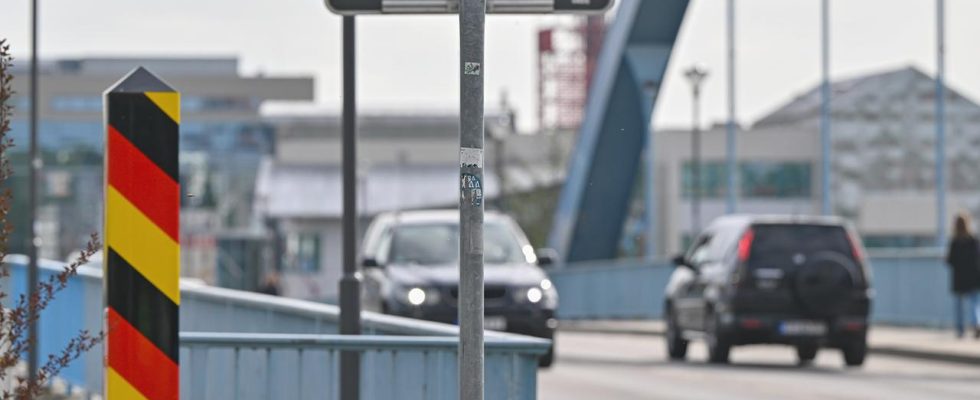After the EU agreement on tightened asylum rules, the Union is demanding further controls at the EU’s internal borders to combat illegal migration to Germany. The Greens doubt the benefits of the reform – and rely on improvements.
After the European Union agreed to tighten the asylum rules, the interior ministers of the union-led federal states continue to insist on controls at the German state border. The federal government had “failed to mitigate the illegal migration pressure through effective European agreements at EU level,” criticized Hesse’s Interior Minister Peter Beuth in the “Bild” newspaper.
Federal Minister of the Interior Nancy Faeser (SPD) should “no longer ignore the demands for situational border controls”. In May, the Union faction demanded that Faeser order controls at several additional border sections due to the increased number of unauthorized entries.
With a view to the conference of interior ministers from the federal and state governments next week, Beuth explained further: “The persistently high level of illegal migration to Germany makes it necessary to introduce temporary stationary and mobile border controls at particularly affected German internal borders after consultation with the neighboring countries concerned.”
Saxony’s Minister of the Interior, Armin Schuster, made a similar statement. “Temporary, situation-dependent EU internal border controls are still necessary, including on the border with Poland”. These controls had a short-term effect and could “be stopped just as quickly if the EU asylum compromise takes effect,” said the CDU politician.
Czaja for extension safer countries of origin
CDU General Secretary Mario Czaja told the newspapers of the Bayern media group that a compromise at EU level alone would not be enough. “It is now the responsibility of the federal government to implement further steps to limit illegal migration. For example, when expanding safe countries of origin.” So-called safe countries of origin are countries where it is generally assumed that there is neither political persecution nor inhumane punishment or treatment. This should enable faster asylum decisions and deportations.
Since the refugee crisis of 2015, there have been border controls with Austria to prevent migrants from neighboring countries from continuing their journey to Germany. After difficult negotiations in Luxembourg, the majority of EU interior ministers approved a compromise on Thursday evening to end the long-standing asylum dispute. Among other things, this provides for asylum procedures at the EU’s external borders for the first time and a much tougher treatment of migrants with no prospects of staying.
Green put on touch-ups
Green leader Omid Nouripour defended the federal government’s approval of the new asylum rules, but also relies on improvements in the European Parliament. “What has been agreed is first of all a political agreement. It is not applicable law,” he said on ZDF. The European Parliament will play an important role in the implementation of law and order.
The Green MEP Erik Marquardt doubted in the daily topicsthat the planned reform will curb irregular migration. If there are large camps at the external borders, the conditions for migrants there would be even worse. This then leads to “there being even more imbalance in Europe, that people have incentives not to register or report to the external border states at all, but they will then take smugglers who may come directly to Germany”. . Marquardt criticized that it was not apparent what the planned reform would improve.

